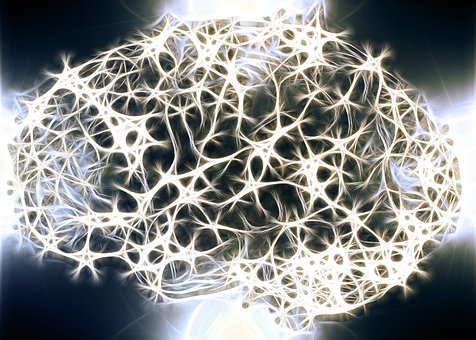Top Tips to Beat Stress
© HealthyMuslim. See Terms and Conditions
Copy Link
Email
Print

Stress can affect people in different ways, and the prolonged effects of negative stress on the body can be harmful for health. Long-term stress is associated with conditions like high blood pressure, headaches, depression, tense muscles and poor digestion.
The body reacts to stress by releasing hormones and neurotransmitters which interact with cells in the immune system. These include adrenalin and cortisol, which when present in the body over a long time, can release anti-inflammatories, weakening the immune system and making us more prone to illness. Furthermore, the stomach produces more acid which can inflame the stomach lining and limit our absorption of nutrients. Stress also shortens the time it takes for food to pass through the digestive system, meaning again, fewer nutrients are absorbed.
Tips to Beat Stress
- Eat a well-balanced, correctly food combined diet. Good food combining will ensure that that your digestion is good and your body is well-nourished, meaning you will be more able to cope with the effects of stress.
- Eat foods rich in Vitamin C to protect the immune system. Include foods like red peppers, broccoli, kiwi fruit, watercress, blueberries, citrus fruit and melon in your diet.
- The B vitamins, especially vitamin B5 (pantothenic acid), are especially good at supporting the nervous system and keeping us calm and less anxious. Like Vitamin C, the body can't store this vitamin so it needs to be topped up regularly. B vitamins are found in broccoli, whole grains (especially barley), lentils, salmon, nuts, sunflower seeds, and eggs.
- Eat foods rich in tryptophan, a 'mood enhancing' amino acid which encourages the production of serotonin in the brain. Good sources are complex carbohydrates like brown rice, pasta, beans and chicken. Other good sources of serotonin are walnuts, figs, avocados, bananas, pineapple, dates and papaya.
- magnesium is known generally as a calming mineral, and gets used up in large amounts when the body produces stress hormones. Top up your levels of this mineral from foods like green leafy vegetables and nuts.
- Eat small amounts of good quality dark chocolate. It contains theobromine, a chemical which stimulates endorphins (the feel-good hormones) in the brain.
- Reduce your intake of stimulants like caffeine. Coffee drinkers have more stress hormones in their system, increasing blood sugar levels and making them more prone to stress. Try herbal teas instead, such as chamomile, which is best known for its calming qualities.
- Improve your breathing. Shallow or rapid breathing increases anxiety, so take slow, deep breaths from the abdomen, which will help release endorphins and have calming effects on the body.
- Daily exercise such as walking can de-stress the body and strengthen its resistance to stress. Exercise gets the circulation moving, and helps to improve concentration and efficiency.
Link to this article: Show: HTML Link • Full Link • Short Link
Share or Bookmark this page: You will need to have an account with the selected service in order to post links or bookmark this page.





|
Related Articles:
- Five Brain-Drainers
- Nutrients and Superfoods for Healthy Skin
- Grapefruit Can Promote Healthy Gums
- Goji Berries: A Great Superfood
- The Dangers of Caffeine
- Book: Curing the Incurable: Vitamin C, Infectious Diseases, and Toxins - Thomas E Levy
- Higher Plasma Vitamin C Levels Reduce Risk Of Developing Type 2 Diabetes
- What Foods Are Good For Your Eyesight?
- Dr Linus Pauling, Vitamin C Infusions and Cancer
You must be registered and logged in to comment.
Most Popular
Latest Articles
Popular Subjects
Health, fitness and longevity
Based upon the principles of health
in the Qur'an and Prophetic Traditions.
HealthyMuslim.Com
There are two bounties in which
most people lose out: good health
and free time. Al-Bukhari.
The information on this site is provided for educational purposes only. It is not intended as a substitute for professional advice of any kind.























